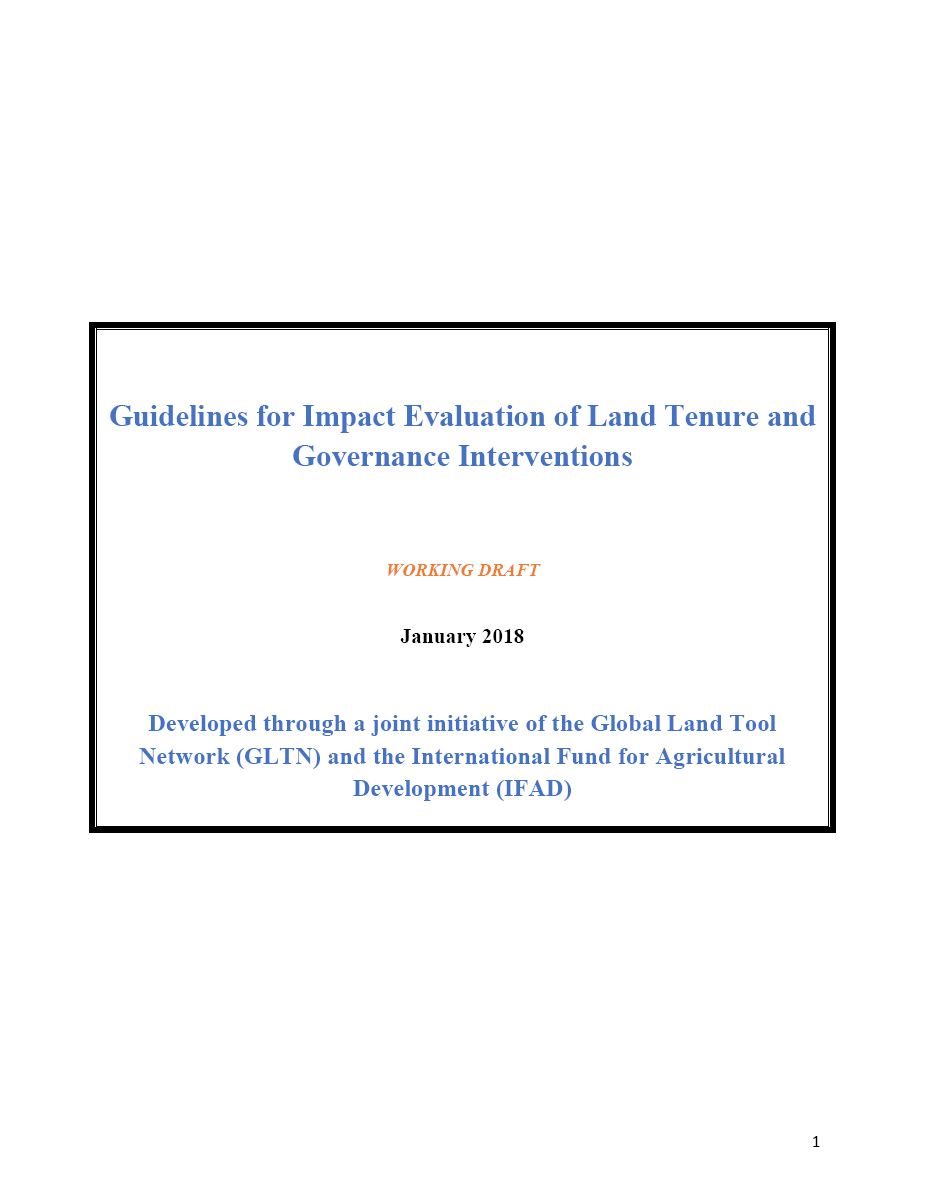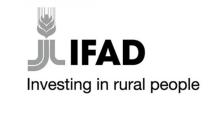Guidelines for Impact Evaluation of Land Tenure and Governance Interventions
Resource information
Date of publication
December 2017
Resource Language
Pages
42
License of the resource
The purpose of the Guidelines for Impact Evaluation of Land Tenure and Governance Interventions (“the guidelines”) is to serve as a tool for both researchers and land sector experts in the design and conducting of land impact evaluations and ultimately broaden the evidence of what works and does not work and why in regard to measures meant to improve land tenure and governance. The overall objective is to inform and strengthen the design and implementation of future land tenure and governance interventions to best support lasting tenure security and achieve related impacts on poverty, food security, gender equality, environmental sustainability, peace and stability.



